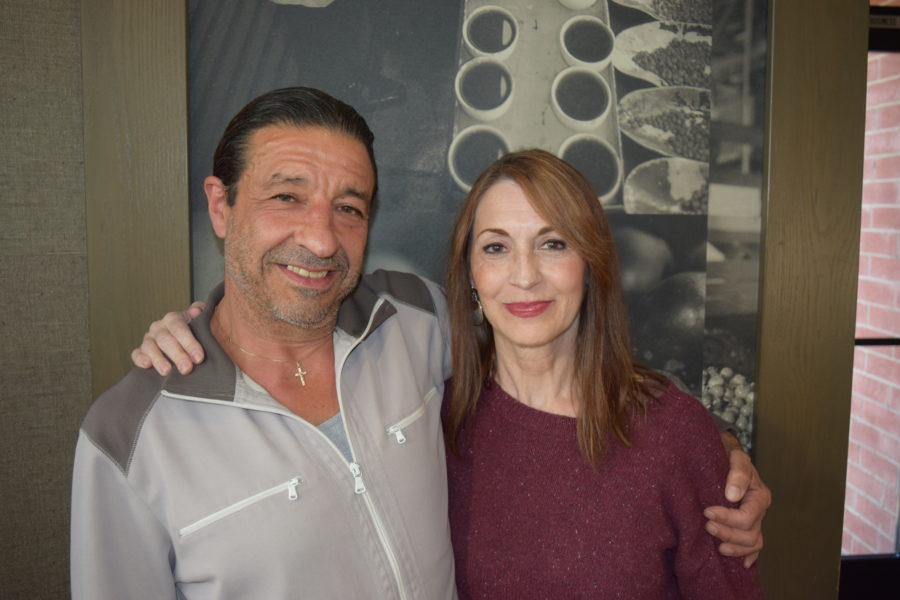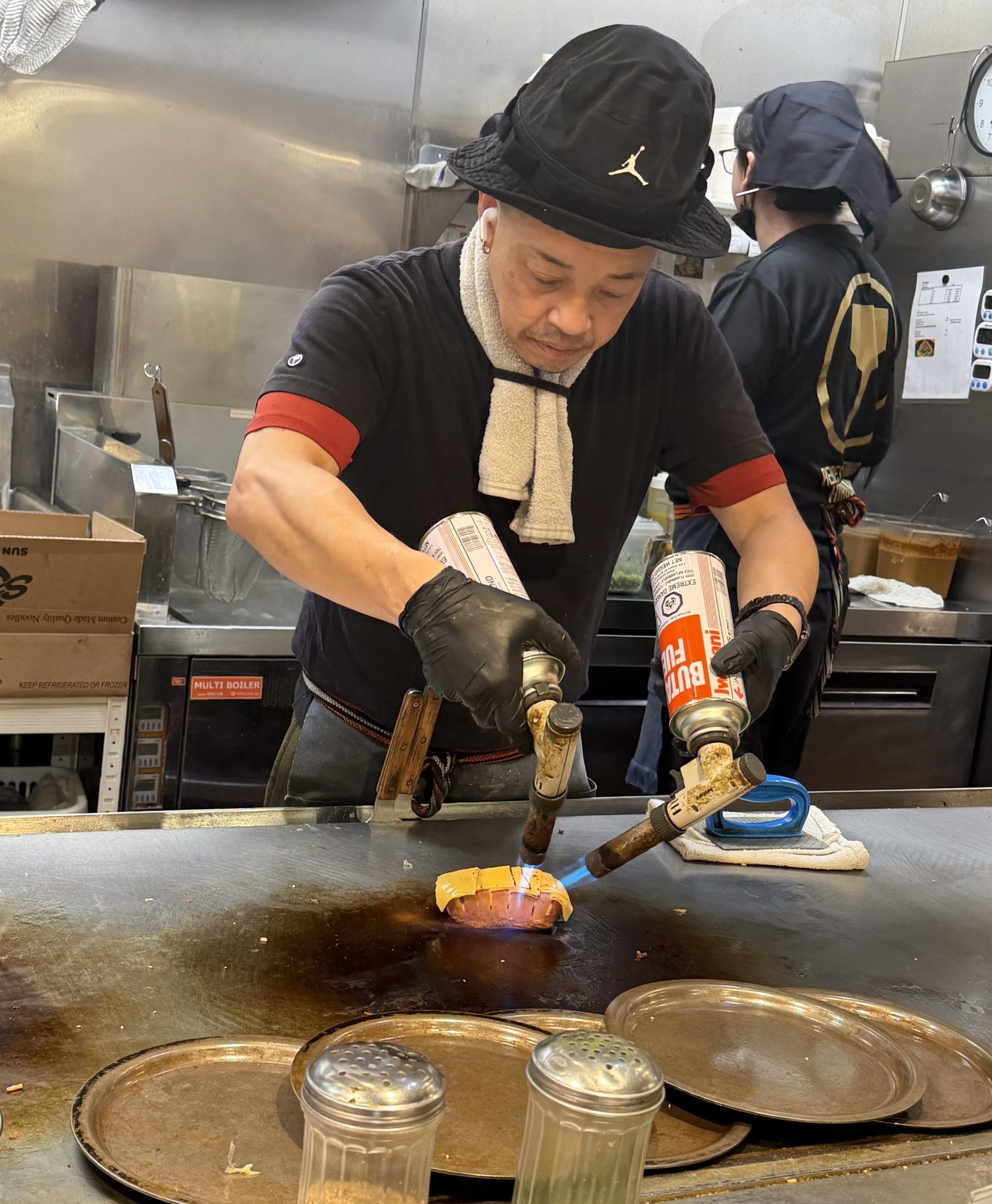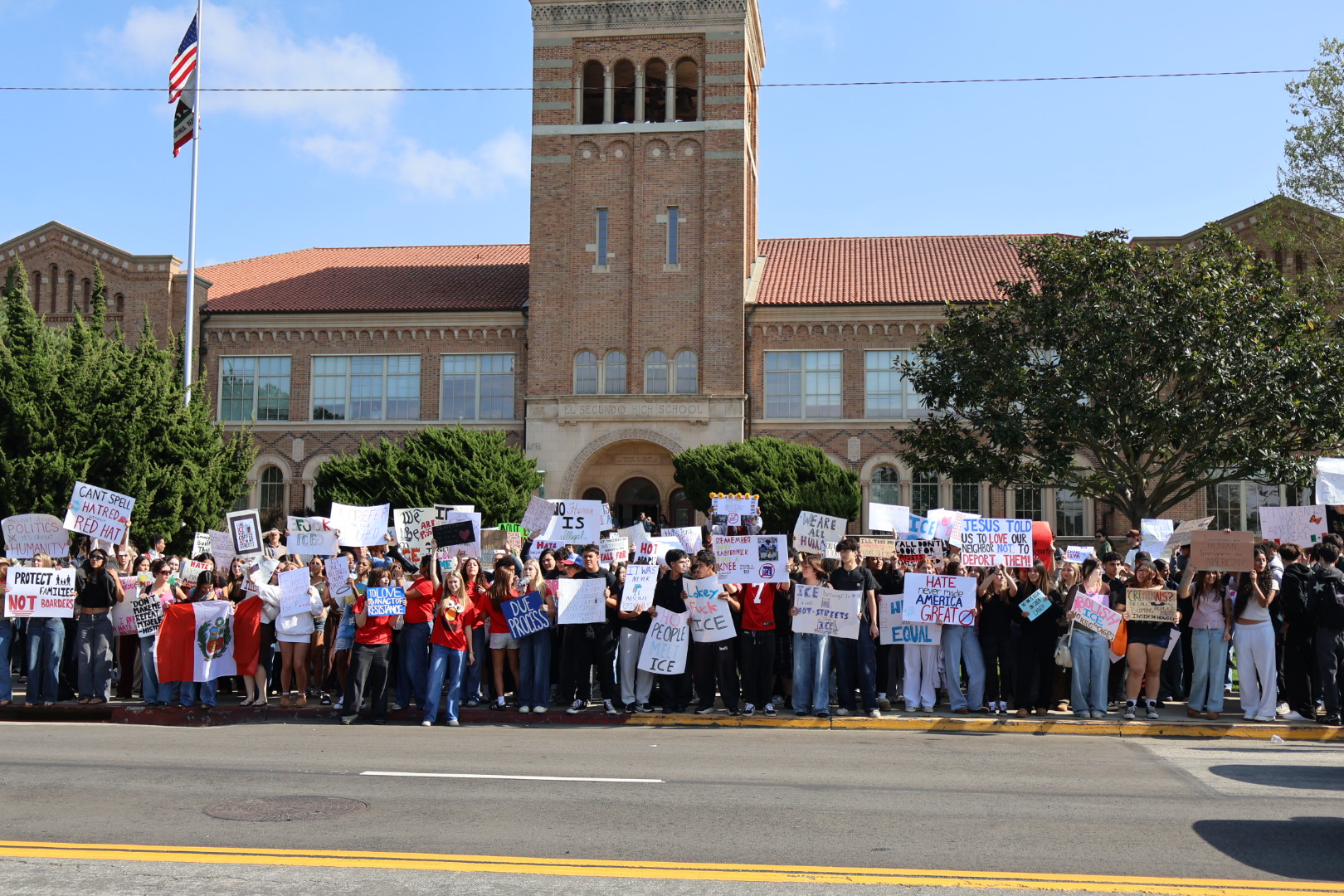
Good vs. Evil, an alcoholic Jesus, and lots more in Angelo Masino’s world premiere drama
Looking to cast his new play, “The War in Heaven,” Angelo Masino sent out copies of the script to various actors. He mentions the response of one recipient. “The first thing he said to me when he got on the phone,” Masino recalls, “was if I do this production I’m gonna go straight to hell.”
Not surprisingly, the actor declined to audition for it.
“The War in Heaven” opens with a free dress rehearsal this Friday at the Second Story Theatre in Hermosa Beach. Over six weekends there will be nine performances.
“In this play Jesus is my boyfriend,” says Loree Sobrito, who has previously appeared in other works for the stage that Masino has written. “We are boyfriend and girlfriend, and Jesus has a bit of an alcohol problem.”
Initially, Sobrito admits that she was taken aback by the play’s opening scene. It’s a doozy.
“When I read the first page of what was happening,” she says, “I was like, oh my God, Angelo, what are you thinking? But then I thought, No, no, I love Angelo’s writing; I’m just gonna keep reading. And once I read it… You can really understand the theme of good versus evil and love conquers all. That’s the theme of the show, love conquers all.
“So, if you get past your feelings of religion…”
Masino briefly describes the first scene, which takes place in a church. There is, let us say, a bit of sexual communion up there on the altar between two prominent Biblical figures.
“When I was handing out the script,” Masino says, “a lot of people wouldn’t get past the first page. So I would put in a disclaimer: Please get past the first page.”
Naturally he wants to know if the reporter who’s interviewing him is religious. Well, not particularly. I’m thinking that it we were all atheists there might still be an occasional war, but at least they wouldn’t be religious wars.

Father, Son, Holy Crap!
“The War in Heaven” takes place in the present and, no surprise here, Mankind is on the brink of disaster. However, as a symbol of hope or salvation, a new Mary and Joseph give birth to a new Christ child, a biracial infant this time considering that Mom is African-American. But nothing good comes without a price, and so archangels Michael and Gabriel stick around to ensure that Jesus doesn’t meet with any foul play at the hands of Lucifer and Damian, father and son princes of darkness.
But let’s go back to the beginning.
“It started off as a short story,” Masino says. “After ‘An Italian-American Indian’ I wasn’t gonna write anymore plays. In the meantime I wrote a book of poetry and a chronology of my family’s life. Then I was gonna write a short story, but I just couldn’t do it. I just started writing dialogue.
“That’s what I do, and I’m good at dialogue.”
Narrative, he adds, is boring. “So, of course I went back to writing plays.”
Artistic works that challenge or provoke our conventional views of organized religion are nothing new. Muhammad, Jesus, et. al., might good-naturedly put up with the abuse; their followers not so much.
Masino’s inspiration comes in part from what his forefathers went through.
“I’m upset with the Catholic church,” he says. “I went to Catholic schools, and I’m an ex-Catholic”
His grandparents came to America from Italy and took construction jobs in New York, at a time when the working conditions were terrible, Masino says. The Catholic priests were appealed to for help, but they merely told or reminded the workers to be patient, to put up with it, and that their reward would come in the Afterlife.
“That’s only one example,” Masino says. “I just think they (the church fathers) took Jesus’s words and did what they wanted to do, and they used his words for personal gain.”
Masino wants to be clear on this: “I would like to add that I do believe in Jesus Christ, and I have my own version of Him. I think everyone should have their own version of Him.” However, “I don’t think somebody should tell you how to believe in Jesus Christ.”
Sobrito agrees, without actually saying amen.
“And I think there’s nothing wrong with Jesus being an alcoholic,” Masino continues. “He’s a guy, you know? He’s part of humanity. There’re a lot of alcoholics out there, a great many.”

And Jesus a Cathoholic?
Angelo may be accused of blasphemy, but no one will be able to accuse him of biased or bigoted casting. His actors, beginning with Phylicia Wissa as a black Virgin Mary, are all up and down the racial spectrum. Joseph, for example, is played by a Hispanic, and Masino’s original plan was for the archangel Gabriel to be Asian. But then an actor who goes by the single monniker of Koushik came along.
“I heard his voice and I was like, oh God, you gotta play Gabriel,” Masino says. The playwright himself takes on the role of the archangel Michael, with both Michael and Gabriel doing battle with Lucifer and his minions. “I fight the war in Heaven,” Masino adds, “while Jesus fights the war on Earth.”
And in case we’re wondering, “the two devils are totally Caucasian.”
Masino lives in Hermosa, Sobrito in Redondo, with actor William Goldman just up the hill in Palos Verdes. The other actors, theatrically new to the area, hail from places like Hollywood and Beverly Hills. Altogether, it’s a nine member cast, which isn’t much for the Rose Bowl but nearly a full house for stage of the Second Story Theatre.

The Gospel According to Angelo
As Loree Sobrito had mentioned earlier, “The War in Heaven” explores elemental themes, with love coming out on top. Perhaps it is love corrupted by money, used in God’s name for personal gain. Politics and politicians enter the fray, and the play suggests that the Devil is in the “one percent,” or the very few who hold sway over the rest of us. The question you may ask, can I be forgiven for taking God’s name in vain?
There seems to be a lot happening, on the surface and beneath it, but Masino assures us it’s an easy play to follow.
“It all makes sense. Definitely,” he replies.
While writing it, Masino took numerous passages from the Bible, mostly the New Testament, with a focus on the apostles John, Matthew, Mark and Luke. With some editing, of course, the Biblical passages were interwoven with the story’s dialogue.
“By the end of the play I was starting to write like the Bible,” Masino says. “So that was pretty weird.”
Sobrito points out that there’s also a great deal of humor in the play, partly because of contemporary references to such things as Google, which may not have existed 10 or 20 years ago, let alone 2,000.
“It is funny,” Masino concurs. “The second half is a lot funnier than the first. The first kind of sets everything up. But once it starts (flowing), it’s beautiful.”
At any rate, it sounds like you’re going to shake things up with this one.
“When I wrote it, I didn’t plan to do that,” Masino replies, “and I didn’t realize how people believe the Bible word for word. We don’t even know if Jesus said half of the things (attributed to Him) in the Bible. For someone to just literally take what was on those pages and believe it without any kind of interpretation, to me it’s strange. So, if we’re gonna be shaking things up, it’s gonna be those kinds of people that are shaken up.”
In other words, he says, “Come with an open mind.” And for those audience members who do? “They’re definitely gonna laugh, and hopefully they’ll get a tear in their eye, too.”
The War in Heaven, by Angelo Michael Masino, begins this Friday evening with a free, open to the public dress rehearsal, with additional performances scheduled for Feb. 19, 20, 26, 27, March 4, 11, 18, and 19, all shows at 8 p.m. and taking place in the Second Story Theatre, 710 Pier Avenue, Hermosa Beach. Mature audiences only. Cast members not mentioned above include Michael Panarello, Austen Michael Rey, and Dave Buzzotta. Tickets, $20. Call (310) 374-9767, and for additional information email angelvision@gmail.com.








